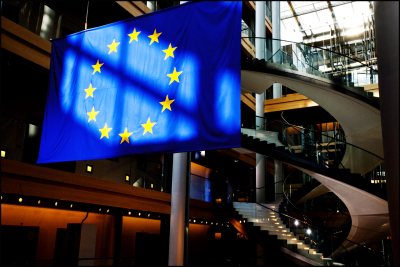The streets might be empty, but lobbyists are still hard at work – taking to Zoom, Skype, and old-fashioned phone calls as they put their case to politicians. But virtual lobbying is still lobbying, so it’s crucial that EU decision makers set a strong example by remaining transparent about who’s trying to influence them.
Criticism of President von der Leyen holding a videoconference with vaccine firm CureVac (who were not at the time on the EU Transparency Register), as well as the recent recommendations by the European Ombudsmen, highlight the importance of monitoring lobby transparency.
So, how much (e-)lobbying is actually going on?
European Commission data on EU Integrity Watch shows a sustained drop in the number of meetings taking place since the pandemic took hold. Last month saw 338 meetings between Commission officials and lobbyists, a sharp drop in meetings compared to the 755 published in February (though this drop might also reflect the different policy areas being discussed). Three quarters of these took place in the first half of the month, before the Commission closed its doors to all but a few staff on March 16th
Unsurprisingly, Covid-19 was at the top of the lobbying agenda in March and April. 113 meetings discussed the virus – way ahead of the second most lobbied issue, the European Green Deal. Some 40 meetings related to the internal market portfolio, reflecting concerns about the crisis’ impact on particular industries.
Unlike Commissioners, not all MEPs are required to publish the details of their meetings – but we nevertheless urge them to do so voluntarily, as many are already doing. We also urge all Permanent Representations to follow Croatia’s lead by publishing full details of their meetings – especially during this precarious time.
Accountability is no less important when working from home and voters have every right to know who decision makers communicate with – even in lockdown. If they fail to do so, policy makers and diplomats will leave the citizens they represent in the dark and could undermine public trust in EU institutions.
Big decisions will be made in the coming months, and not just about the coronavirus. The citizens of Europe have a right to know who’s trying to influence these decisions.






